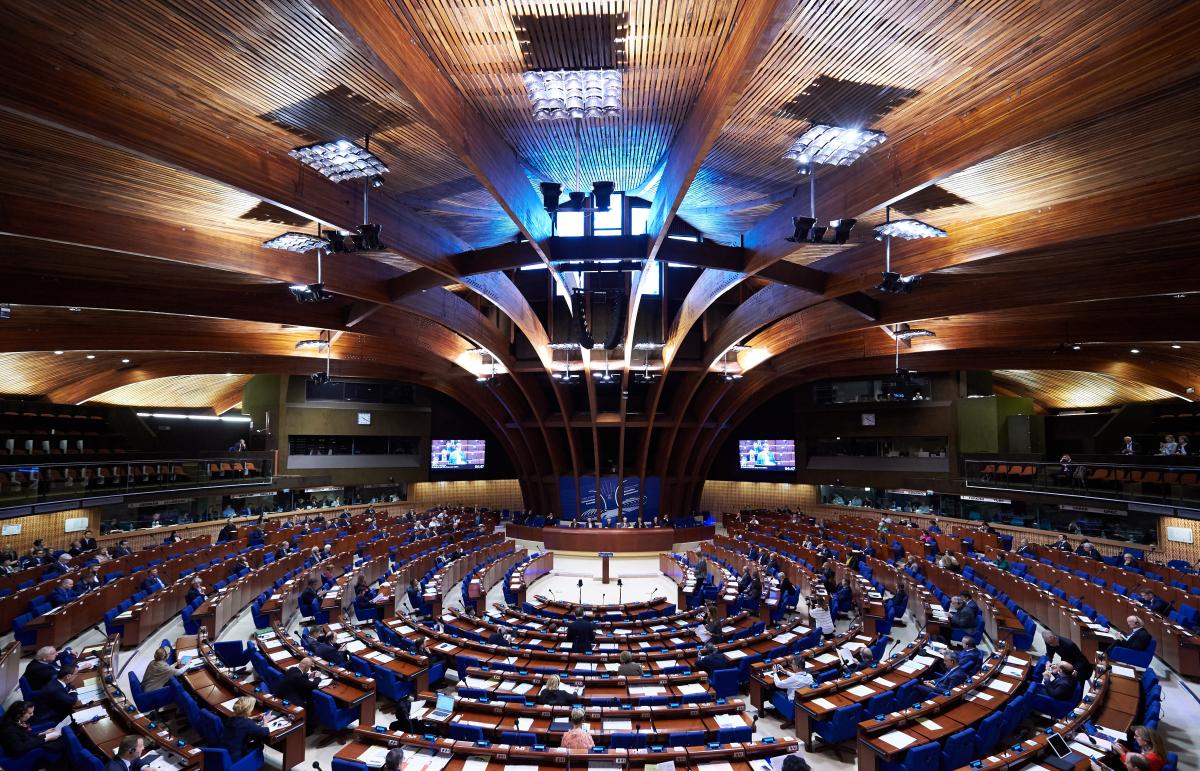
German diplomats and deputies are openly taking active steps to lift the sanctions pressure from Russia in the Parliamentary Assembly of the Council of Europe and plan to do this at the current PACE session.
The representatives of Germany have never concealed the fact they prefer a "dialogue" with the Russian Federation even if this requires moving away from putting pressure on it, the Ukrainian media outlet European Pravda reported on April 8, referring to several Western diplomats, as well as representatives of the expert community.
Read alsoCouncil of Europe chief proposes changes to rules to ensure return of Russian delegation
But the data available to the media outlet suggest that now this refers to a coordinated campaign that has grown considerably in the run-up to the PACE spring session.
"It is noteworthy that this activity is non-partisan: it covers representatives of both key forces of the government coalition – [the Christian Democrats] CDU/[the Christian Social Union in Bavaria] CSU and the Social Democrats. Recently, the deputies from the CDU and [the Social Democratic Party of Germany] SPD sent a letter to the PACE president to revise the sanctions rules, removing the Assembly's right to impose sanctions on delegations from violating states when approving their powers," the publication wrote.
At the same time, German deputies are conducting explanatory work in PACE, persuading other parliamentarians that the struggle between Ukraine and Russia is an "election technology" and Europe should not support it, the European Pravda said.
Parliamentarians also claim Angela Merkel personally supports the idea of forgiveness of Russia.
However, the chancellor has not yet made public her position on this issue. But German diplomats are also unprecedentedly active in negotiating with representatives of other states about the return of Russians to PACE without sanctions, according to the publication.
Official Berlin insists this will allow "saving Russia's membership in the Council of Europe," although their opponents question this logic.
According to sources, the acceleration of the plan is among the options with the de facto liquidation of sanctions mechanism at the PACE session in April.
UK Permanent Representative to the Council of Europe Christopher Yvon reported on unprecedented activity in this regard, although without indicating the state involved in this.
"I was told today by a close follower of the work of the Council of Europe that this week it was doing self chemical castration. Surely we don't want that," he wrote on Twitter on Sunday, April 7.
In his previous tweets, the British diplomat said he insisted on punishing Russia for violating the principles of the Council of Europe.
As UNIAN reported earlier, Council of Europe Secretary General Thorbjorn Jagland proposed that the rules of the Council of Europe be changed to return the Russian delegation to PACE.
At the PACE session in January, Jagland officially initiated work on amendments to the Statute of the Council of Europe to solve the crisis with Russia's participation in the work of the Council of Europe and with the Russian non-payments.

